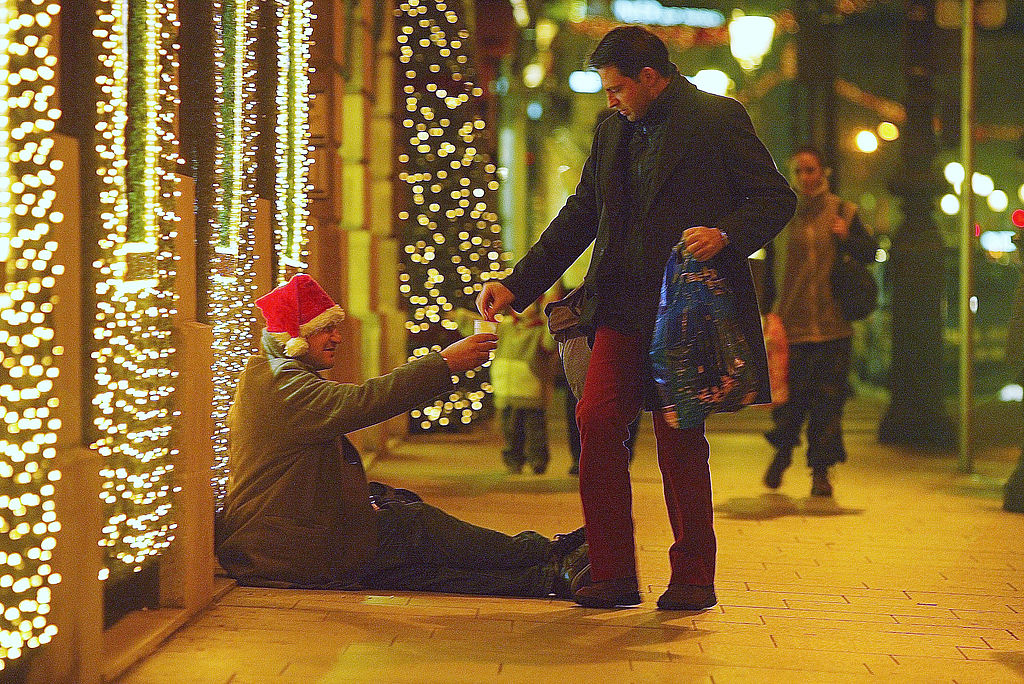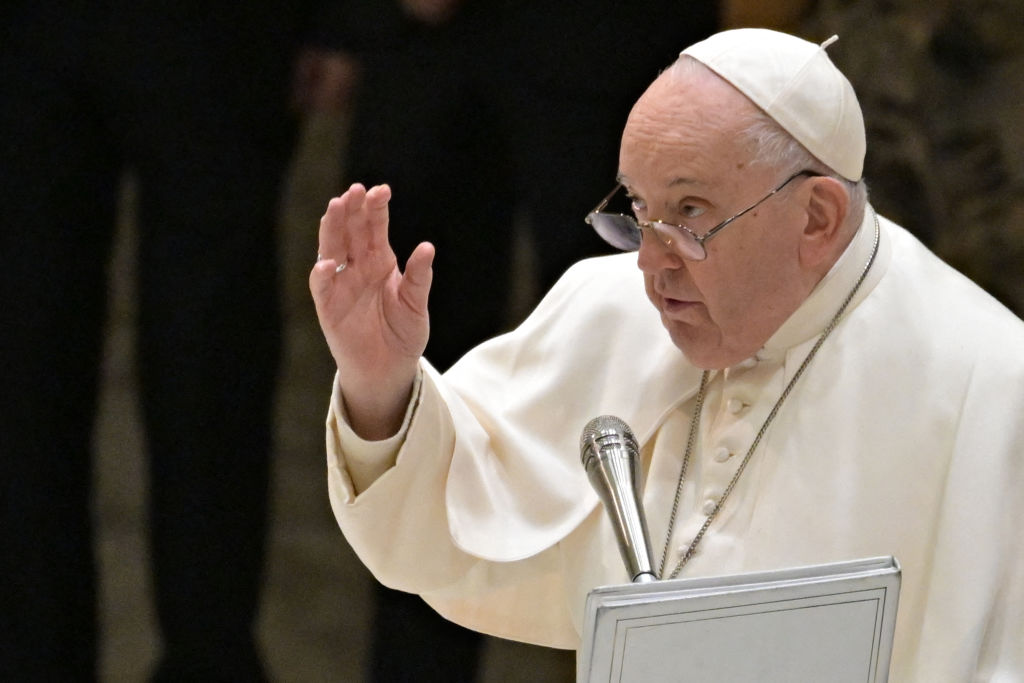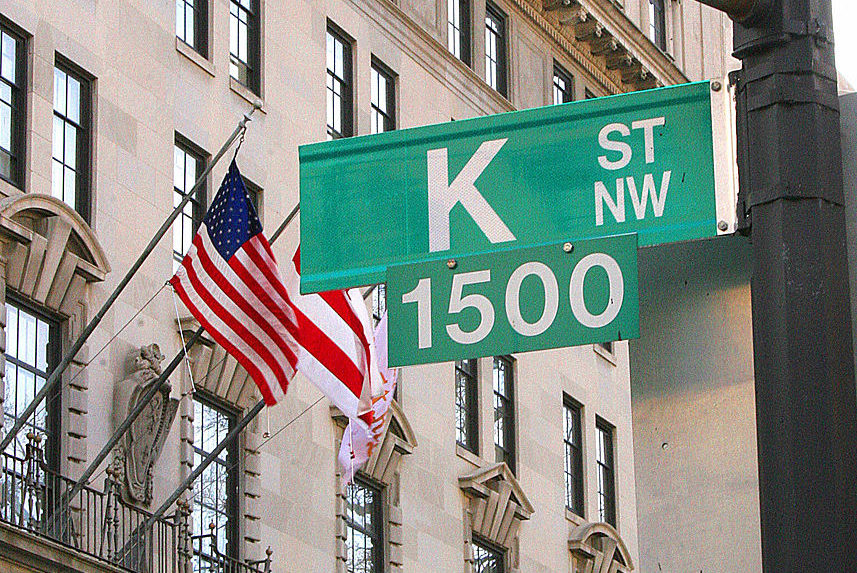Here’s a bittersweet headline to warm your heart this holiday season: “Woman set up GoFundMe that raised over $1 million for her children before she died.”
And another: “GoFundMe benefiting pregnant wife of Matthew Gaudreau has raised over $500K.”
And one more for good measure: “GoFundMe raises over $26K for Massachusetts State Police trooper’s family.”
I see stories like these weekly — and what’s remarkable about them is not so much that people are willing to help neighbors enduring tragedy, but how so many people are willing to go above and beyond what is being asked. The first fundraiser, for instance, was set up by a single mother from Utah dying of cancer to raise $5,000 for her own funeral expenses and a little money for the kids she left behind. As of the woman’s death, $1,201,756 had been raised.
The GoFundMe set up for the pregnant widow of Matthew Gaudreau, a professional hockey player killed alongside his brother when they were struck on their bicycles by a suspected drunk driver, sought to raise $30,000. As of this writing, the campaign has raised $855,559. Similarly, the goal for slain Massachusetts State Police recruit Enrique Delgado-Garcia was originally $15,000, yet by now has surpassed $45,000.
These cases made headlines, of course, because they’re extraordinary. There are plenty of such fundraising efforts that gain no traction and leave the needy empty-handed. In fact, last year, Stanford University Press published what I assume is a supremely depressing book on the topic, GoFailMe: The Unfulfilled Promise of Digital Crowdfunding.
Nonetheless, these instances of viral giving got me to wondering and then to researching: are Americans exceptionally generous people? For goodness’ sake (literally), we (I speak merely as a citizen, as I didn’t personally donate) raised more than $475,000 in two days for the University of North Carolina students, “armored in Vineyard Vines and Patagonia, fueled by Zyn and White Claws,” who “protected Old Glory from the unwashed Marxist horde” by defending the American flag during campus protests over the war in Gaza (and yes, the frat bros did get their rager).
It turns out that, yes, people living in the United States have traditionally been pretty philanthropic, but the trend is changing.
In 2021, for the second year in a row, charitable giving in the US reached a record high. In November 2023, the World Food Program USA reported that, “Charity Aid Foundation conducted research on countries around the world to analyze the percentage of people who helped strangers, volunteered or donated to a charity. From 2009-2018, the United States consistently ranked number one as the most generous country in the world. And in 2022, Americans were still towards the top as number three most generous country. In 2022, Americans gave an incredible $499.33 billion to charity. To put that into perspective, it averages out to every individual in the United States donating $1,500.”
According to the Philanthropy Roundtable, “After adjusting for inflation, charitable giving by Americans was close to seven times as big in 2016 as it was sixty-two years earlier. Of course, one reason total giving went up is because the US population almost doubled. But if we recalculate inflation-adjusted charitable giving on a per capita basis, we see that has also soared: by three and a half times. Charitable causes are very lucky to have a remarkably expansive American economy behind them, and a standard of living that refuses to stagnate.”
Though the number of dollars going toward charity is high, the number of people shelling it out is decreasing. In October 2024, Giving USA reported that the “number of dollars and hours given to nonprofits has gone up, but the number of donors and volunteers has gone down.”
So the rich get richer and give more to charity while the rest of us donate and volunteer less, and, presumably, rely more on the nonprofit organizations funded by the wealthy? Sounds a little dismal on the surface, but consider the upside: the more people rely on the generosity of their neighbors, the less they’ll rely on Big Brother, right?
Government could, however, have something to do with all this charitable giving. Amir Pasic, dean at the school of philanthropy at Indiana University, has noted, “There’s a different cultural approach to philanthropy in the US. We have a tax system that supports it; public institutions that celebrate it; and educational, social and cultural organizations that require it to thrive. It’s part of our expanded understanding of what it means to be American.”
Competition is also part of what it means to be American, and while there’s a lot to unpack and analyze about our nation’s philanthropic spirit, one great stat regarding the pockets of American patriots holds true: “Per capita, Americans voluntarily donate about seven times as much as continental Europeans,” reports the Philanthropy Roundtable. “Even our cousins the Canadians give to charity at substantially lower rates, and at half the total volume of an American household.”
Keep that in mind during this Christmas season of charity — and remember that donating is also associated with considerable health benefits. As is playing, watching and supporting baseball, and that Birmingham-Southern baseball team isn’t going to make it to the Division III World Series without your help, so head on over…
Wait, it turns out their GoFundMe raised $110,965 — surpassing their goal of $100,000.
God bless America.
This article was originally published in The Spectator’s December 2024 World edition.


























Leave a Reply